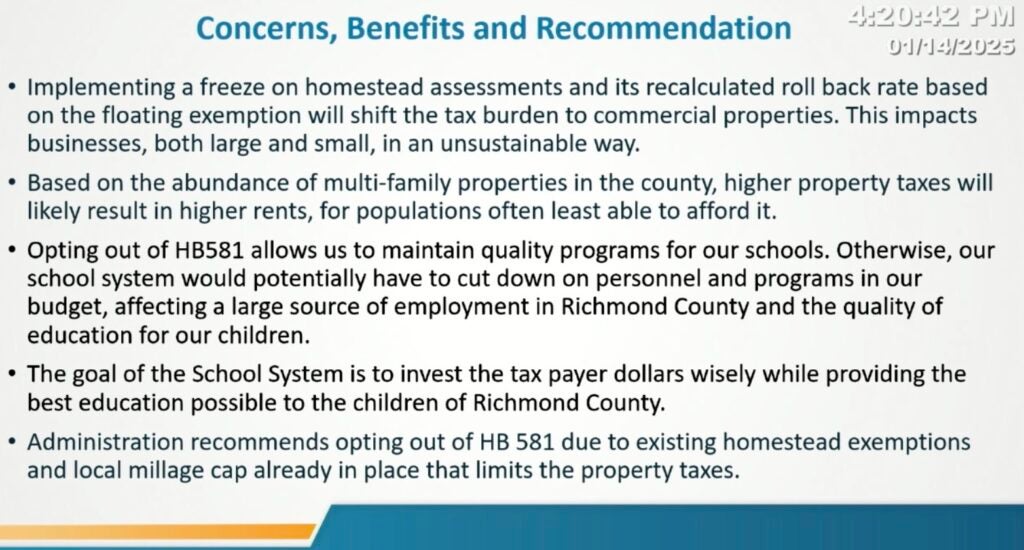Richmond County School System held the first of three public hearings required to opt out of a new homestead tax break Tuesday.
House Bill 581, approved statewide by voters in November, creates a floating homestead exemption that limits property tax increases to the rate of inflation rather than basing them on reassessments, many of which skyrocketed in recent years.
Multiple local governments have begun the process of opting out, including Columbia County and the Columbia County School District. Augusta officials continued to mull the options Monday.
The region isn’t unique in questioning the legislation. Richmond Schools’ Chief Financial Officer Bobby Smith said a survey by the Georgia School Superintendents Association found approximately 86 school districts, or around 78%, intend to opt out.
Richmond County’s reasons to opt out include the cap that already limits millage rate increases when Augusta’s tax digest grows, Smith said. The district has set tax rates at the cap in two of the last five years.

Locally, homeowners are already eligible for lucrative homestead exemptions that include a $5,000 local homestead exemption, used to reduce a home’s taxable values, and an exemption from all school taxes for those over age 65, according to Smith’s presentation.
Combined with additional exemptions for impoverished homeowners, surviving spouses of public safety personnel, disabled veterans and the spouses of disabled veterans, exemptions saved Augusta homeowners some $33.7 million on their taxes last year, it said.
Around 31,000 owner-occupied homes, which represents 38% of all properties in Augusta-Richmond, would see the savings from the new bill. Rentals, multifamily, commercial and vacant land would not be eligible for the tax freeze.
School system trustee Walter Eubanks questioned whether voters wanted the exemption from the referendum or its fine print, the ability to opt out.
“It could be that people voted for it because we could opt out,” Eubanks said. “There are a lot of commercial owners, and I don’t think we can assume that 60% of the people wanted this thing.”
Two who addressed the school board disagreed. Retired educator Dan Funsch called it “disingenuous” to assume voters didn’t know what they voted for.
“I ask you to not exempt yourself and to take seriously the voice of the voters in Richmond County,” he said.
Former Mayor Bob Young, who spoke out during Monday’s Augusta Commission meeting, said the new exemption was ratified by voters in the referendum Nov. 5.
“Six of you have the option of taking away this tax break for homeowners,” Young said. “It goes beyond voter suppression – it’s voter nullification.”










